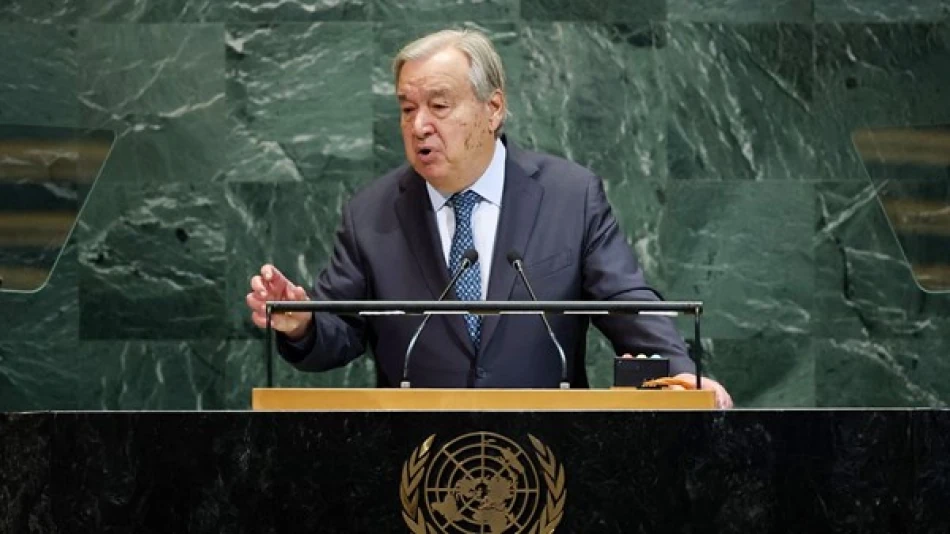
Gaza Catastrophe Unprecedented, UN Chief Warns
UN Secretary-General António Guterres warned Tuesday that the world has entered an "age of reckless fragmentation and ongoing human suffering," with global peace foundations under threat due to lack of accountability and weakening commitment to international law. Speaking at the opening of the UN General Assembly's 80th session, he called the Gaza war one of the most tragic humanitarian disasters of modern times.
Guterres didn't hold back in his assessment of Gaza. He described the conflict as an unprecedented humanitarian catastrophe, pointing to deliberate deprivation of basic life necessities and infrastructure targeting that undermines any chance for peace. The Secretary-General demanded immediate opening of humanitarian corridors without obstacles and compliance with International Court of Justice measures.
He emphasized that a two-state solution remains the only path to end what he called "this bleeding." This statement comes as international pressure mounts for a political resolution to the conflict that has drawn global attention and condemnation from various quarters.
The UN chief outlined five critical choices for world leaders to save the international system: establishing law-based peace, ensuring human dignity, achieving climate justice, harnessing technology for humanity's benefit, and strengthening the UN's role. These priorities reflect growing concerns about multiple crises threatening global stability.
Guterres also addressed interconnected crises including poverty, climate change, and geopolitical tensions. He warned these overlapping challenges create a perfect storm that could destabilize the international order built after World War II.
The speech reflects broader anxieties about the current state of international relations. With conflicts in Ukraine, Gaza, and other regions, along with rising tensions between major powers, many observers worry about the effectiveness of existing international institutions.
In his closing remarks, Guterres framed the moment as a decisive choice between drifting toward chaos or reviving international multilateralism. He called for collective responsibility to build a more secure and just future, essentially asking world leaders whether they're willing to work together or let the system collapse.
The timing of this stark warning is significant. The UN General Assembly brings together world leaders at a moment when international cooperation faces serious challenges, from climate action to conflict resolution to managing technological change.
Most Viewed News

 Layla Al Mansoori
Layla Al Mansoori






